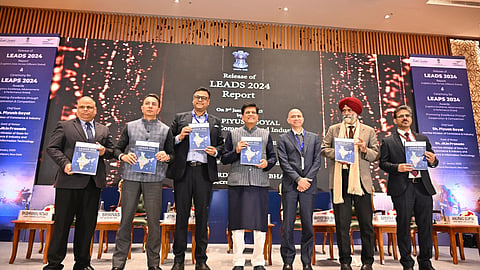
- Home
- Live Blog
- Breaking News
- Top Headlines
- Cities
- NE News
- Sentinel Media
- Sports
- Education
- Jobs

NEW DELHI: Meghalaya has been recognized as a ‘Fast Mover’ in the recently released Logistics Ease Across Different States (LEADS) 2024 report, joining Mizoram, Nagaland, Tripura, and Sikkim in the North-Eastern Region (NER).
The report, unveiled by Union Minister of Commerce and Industry Piyush Goyal in New Delhi on January 3, evaluates the logistics ecosystem of Indian states and union territories.
The LEADS 2024 report categorizes Assam and Arunachal Pradesh as ‘Achievers,’ signifying superior logistics performance within the NER, while Manipur has been classified as an ‘Aspirer.’
The assessment is based on four key pillars: Logistics Infrastructure, Logistics Services, Operating and Regulatory Environment, and the newly introduced Sustainable Logistics. The report also highlights state-specific initiatives and offers a roadmap for improvement in logistics performance.
For Meghalaya, the ‘Fast Mover’ status reflects its progress in developing a logistics framework. However, challenges such as difficult terrain, inadequate infrastructure, and regulatory hurdles continue to impede trade and commerce in the state.
The report emphasizes the need for critical investments in infrastructure, including enhanced road connectivity and the establishment of multi-modal logistics hubs, to address logistical bottlenecks. Additionally, the introduction of Sustainable Logistics in the evaluation presents an opportunity for Meghalaya to adopt green logistics practices, leveraging its reputation for eco-tourism.
With a state economy reliant on mining, tourism, and agriculture, improved logistics is essential for Meghalaya’s integration with national and global markets. Key projects like the Shillong-Dawki road initiative and plans for rail connectivity are expected to play pivotal roles in enhancing logistics capabilities.
The LEADS 2024 report was presented at the Logistics Excellence, Advancement, and Performance Shield (LEAPS) felicitation ceremony, where Union Minister Piyush Goyal stressed the importance of regional collaboration in logistics development. He noted that the report serves as a valuable tool for states and union territories to make informed decisions about improving their logistics ecosystem.